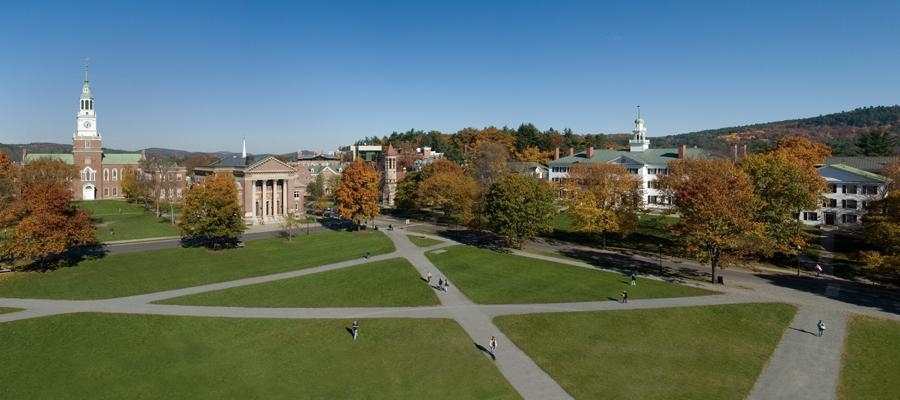President Hanlon and Provost Denver’s recent message to the community regarding diversity and inclusivity formally marks the beginning of a new era at Dartmouth, with its own unique set of challenges. Over the last thirty-five years, The Dartmouth Review has witnessed the College pass through other ‘new eras’ and has taken a critical role in reporting on, advocating for, and, most notably, rallying against these changes.
Our paper has extended its influence far beyond the grounds of this small college through its articles and through its alumni, who have gone on to fight for and preach conservative values in the premier conservative strongholds and in the most remote liberal deserts. Many of these distinguished alumni continue to support The Review and will be in attendance at our Thirty-Fifth Anniversary Gala. In honor of their early contributions to the paper, which made ripples throughout the nation, this issue contains some of the most notable articles The Review has published as well as articles that chronicle some of our more exciting moments. These articles do not necessarily represent the views of the current editors of The Dartmouth Review and we present them solely as historical artifacts.
These articles and their contemporaries, although they range from one to thirty-five years old, were prophetic. The Dartmouth Review has long cautioned its readers that higher education was headed down a dangerous path. The President and Provost’s message represents an impending institutionalization of an unfortunate set of values. These values have developed and mutated since long before the arrival of The Dartmouth Review. No matter how noble their predecessors were or how honest intentions behind them, they constitute a threat to higher education, American culture, essential Constitutional freedoms, and the Dartmouth College that we have all called home.
As it has in the past, The Review will continue to play an essential role defending the College against these destructive tendencies, advocating for meaningful administrative reform that deals with real problems extant at Dartmouth, and promoting positive moral values within the student body. We will work to hold administrators, faculty, and students responsible for their words and actions just as we have for thirty-five years.
There is a continuing debate over whether The Review should continue to provoke controversy by bringing to light the negative actions of others and providing critical commentary that is true to our conservative values. Over thirty-five years, some of the paper’s leaders have toned down its rhetoric or taken it in different directions. Others have charged head-first into controversy. I propose that the intellectual battle on campus has nothing to do with tactics. My objection to our many recent protests transcends the disagreeable tactics used – I simply disagree with the views that the protesters hold and how they want to impose those views on others. I am sure that the protesters view The Review in a similar way.
There is no reason why we should limit our tactics, moderate ourselves, or strive needlessly for controversy. The real purpose of our paper is to foster intellectual dialogue, independent of the restrictions that now abound. When the situation is controversial, we must embrace it. When there is room for cooperation with our erstwhile ideological opponents, we should work with them in whatever capacity we can.
President Hanlon and Provost Denver’s message will provide both of these types of opportunities. The Dartmouth Community Study opens, “Dartmouth College affirms that diversity and inclusion are crucial to the intellectual vitality of the campus community.” As it continues to expound the virtues of diversity, it fails to provide a concrete definition of the term itself. The Review has always represented an example of true diversity at Dartmouth. We bring together a peculiar assortment of people from many socioeconomic, religious, and ethnic backgrounds, all of whom contribute unique ideological perspectives to the paper. Instead of abetting the separation of students into cliques, this paper works to challenge students to push their intellectual boundaries.
The study continues, “It is through freedom of exchange over different ideas and viewpoints in supportive environments that individuals develop the critical thinking skills that will benefit them throughout their lives.” The Dartmouth administration has repeatedly failed to live up to this ideal. More than ever, The Review will have to fight for the rights of students in an era of the institutionalization of political correctness, safe spaces, trigger warnings, and more. As the College Administration rapidly expands to meet the alleged needs of certain students and the self-interest of its executives, The Review will have the opportunity to expose this unethical trend in higher education.
The next five years will not be easy for The Dartmouth Review or its staff. It will need all the help it can get from concerned students, faculty, and alumni to turn the tide at Dartmouth. Fortunately, it has proven on countless occasions that the courage of its convictions outweighs the treachery of those who seek to wreak havoc on this college on a hill.


Be the first to comment on "A New Era"